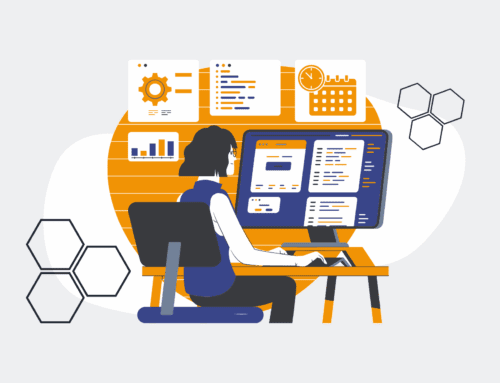Essential Keap Data Management & Recovery Vocabulary
In the fast-paced world of HR and recruiting, efficient data management within your CRM is not just a convenience—it’s a necessity for scalability, compliance, and strategic decision-making. This glossary provides HR and recruiting professionals with a foundational understanding of key terms related to Keap data management, recovery, and the automation crucial for safeguarding your valuable candidate and client information. Mastering this vocabulary will empower you to better protect your data, streamline operations, and harness the full potential of your Keap investment.
Keap CRM
Keap CRM (Customer Relationship Management) is an all-in-one sales and marketing automation platform designed to help small businesses grow by organizing client data, automating communication, and streamlining sales processes. For HR and recruiting professionals, Keap serves as a central hub for managing candidate pipelines, client relationships, and communication histories. It enables teams to track applicants from initial outreach to placement, manage client accounts for staffing solutions, and automate follow-up sequences. Effective utilization of Keap CRM ensures no lead or candidate falls through the cracks, maintaining a structured approach to recruitment and client engagement.
Data Backup
Data backup refers to the process of copying data from its primary location to a secondary one to protect against loss, corruption, or deletion. For HR and recruiting teams using Keap, regular data backups are critical. This involves creating secure copies of your contact records, campaign histories, custom fields, and automation settings. Backups act as a safety net, allowing you to restore your Keap data to a previous state should unforeseen events occur, such as accidental deletions, system errors, or even a breach. Implementing a robust backup strategy is a cornerstone of data management, ensuring business continuity and data integrity for your sensitive candidate and client information.
Data Recovery
Data recovery is the process of retrieving lost, corrupted, or otherwise inaccessible data from a backup. In the context of Keap, data recovery involves restoring your CRM information—candidate profiles, client communication logs, sales opportunities, and marketing automation settings—from a previously created backup. This process is vital for HR and recruiting firms that experience data loss due to system failures, human error, or cyber incidents. Prompt and efficient data recovery minimizes downtime, prevents the loss of critical applicant or client data, and ensures your recruitment and HR operations can quickly resume without significant disruption or impact on your pipeline.
Automation Workflow
An automation workflow is a sequence of automated tasks or actions triggered by specific events or conditions within Keap or integrated platforms. For HR and recruiting, these workflows are transformative, automating repetitive tasks like sending candidate follow-up emails, updating contact statuses, or initiating onboarding sequences. For example, a new applicant submission can trigger an email confirmation, create a task for a recruiter, and update their Keap record, saving significant administrative time. Well-designed automation workflows enhance efficiency, ensure consistent candidate and client experiences, and free up recruiters to focus on high-value interactions, ultimately streamlining the entire talent acquisition process.
CRM Database
A CRM database is the structured collection of all customer, prospect, and lead information stored within a Customer Relationship Management system like Keap. For HR and recruiting professionals, this database contains comprehensive profiles of candidates, clients, and vendors, including contact details, interaction histories, notes, deal stages, and custom fields. It serves as the single source of truth for all relationships, enabling personalized communication, efficient pipeline management, and data-driven decision-making. Maintaining an organized and accurate CRM database is paramount for successful recruitment campaigns, client retention, and overall operational efficiency, ensuring all team members access up-to-date and reliable information.
Data Integrity
Data integrity refers to the overall accuracy, completeness, consistency, and reliability of data over its entire lifecycle. In Keap, maintaining data integrity means ensuring that candidate profiles, client records, and campaign histories are always correct, up-to-date, and free from errors. For HR and recruiting, this prevents issues like duplicate records, outdated contact information, or incorrect applicant statuses, which can lead to inefficient outreach or compliance risks. Strategies to uphold data integrity include implementing standardized data entry protocols, regular data cleansing, validation rules, and robust integration practices. High data integrity ensures reliable reporting and supports effective, personalized recruitment and client management strategies.
API Integration
API Integration involves connecting different software applications or systems using Application Programming Interfaces (APIs). APIs allow distinct platforms, like Keap and an applicant tracking system (ATS) or a background check service, to communicate and exchange data automatically. For HR and recruiting, API integrations eliminate manual data entry between systems, reducing human error and saving significant time. For example, when a candidate’s status changes in your ATS, an API integration can automatically update their record in Keap, triggering a personalized follow-up email. These integrations create a seamless ecosystem, enhancing data flow, automating workflows, and improving overall operational efficiency.
Webhook
A webhook is an automated message sent from an application when a specific event occurs, acting as a “user-defined HTTP callback.” Unlike traditional APIs that require polling for updates, webhooks deliver real-time data to a specified URL as soon as an event happens. For HR and recruiting using Keap, webhooks are powerful for real-time automation. For instance, when a new contact is added to Keap, a webhook can instantly notify an external application to create a new task, update a spreadsheet, or trigger an SMS message to a recruiter. This immediate data transfer enables dynamic, event-driven workflows that are highly responsive and efficient.
Data Migration
Data migration is the process of transferring data from one storage system, database, or application to another. This is often necessary when an HR or recruiting firm adopts a new CRM (e.g., moving to Keap), upgrades existing systems, or consolidates multiple data sources. For recruiters, this might involve moving thousands of candidate profiles, client contact details, historical communications, and custom field data. A well-planned data migration ensures all critical information is accurately transferred, preserving data integrity and minimizing disruption to ongoing operations. Poorly executed migrations can lead to data loss, corruption, and significant operational delays, highlighting the need for expert guidance.
Cloud Storage
Cloud storage is a model of computer data storage in which digital data is stored in logical pools, generally across multiple servers, and the physical environment is owned and managed by a hosting provider. For HR and recruiting professionals, this means Keap data and associated documents are securely stored online, accessible from any internet-connected device. Cloud storage offers scalability, allowing businesses to expand their data storage without investing in physical infrastructure. It also provides enhanced data redundancy and disaster recovery capabilities, as data is often replicated across multiple locations. This ensures continuous access to critical candidate and client information, supporting remote work and business continuity.
Data Security
Data security encompasses the protective measures and protocols implemented to safeguard digital data from unauthorized access, corruption, or theft throughout its lifecycle. For HR and recruiting firms, ensuring the security of sensitive Keap data—including candidate PII (Personally Identifiable Information), client contracts, and confidential communications—is paramount. This involves implementing strong passwords, multi-factor authentication, encryption, access controls, and regular security audits. Robust data security practices not only protect against cyber threats and data breaches but also help maintain trust with candidates and clients, and ensure compliance with various data protection regulations, minimizing reputational and financial risks.
Data Redundancy
Data redundancy refers to the practice of storing identical copies of data in multiple locations within a system or across different systems. The primary purpose of data redundancy is to protect against data loss in the event of hardware failure, corruption, or disaster. For HR and recruiting firms managing critical Keap data, implementing redundancy ensures that if one copy of a candidate profile or client record becomes unavailable, another identical copy can be immediately accessed. This strategy is a crucial component of a disaster recovery plan, significantly improving data availability, system reliability, and overall business continuity, minimizing the impact of unforeseen data incidents.
Compliance (Data Privacy)
Compliance with data privacy refers to adhering to regulations and legal frameworks governing how personal data is collected, stored, processed, and shared. For HR and recruiting professionals using Keap, this includes laws like GDPR, CCPA, and various industry-specific guidelines that dictate how candidate and client information must be handled. Compliance ensures ethical data practices, protects individuals’ privacy rights, and helps avoid hefty fines and reputational damage. This involves obtaining consent, ensuring data accuracy, implementing secure storage, providing data access rights, and having clear data retention policies. Adhering to these regulations is vital for maintaining trust and operating legally in today’s data-driven landscape.
Contact Record
A contact record, within Keap or any CRM, is a comprehensive profile containing all relevant information about an individual, whether they are a candidate, client, or prospect. For HR and recruiting, this record includes contact details (name, email, phone), work history, communication logs, assigned tags, custom fields for specific qualifications or preferences, and their interaction history with your firm. Each contact record acts as a centralized repository, providing a 360-degree view of the relationship. Accurate and complete contact records enable personalized outreach, efficient pipeline management, and informed decision-making throughout the recruitment and client engagement lifecycle.
Segmentation
Segmentation is the process of dividing a large group of contacts or leads within Keap into smaller, more manageable groups based on shared characteristics, behaviors, or demographics. For HR and recruiting, this could involve segmenting candidates by industry, skill set, experience level, or location, and clients by sector or service needs. Segmentation allows for highly targeted marketing campaigns, personalized communication, and more efficient outreach, ensuring that messages are relevant to the specific needs or interests of each group. This strategic approach enhances engagement, improves conversion rates, and optimizes resource allocation, making recruitment efforts more effective and impactful.
If you would like to read more, we recommend this article: Keap Data Protection for HR & Recruiting: Your CRM-Backup Guide









